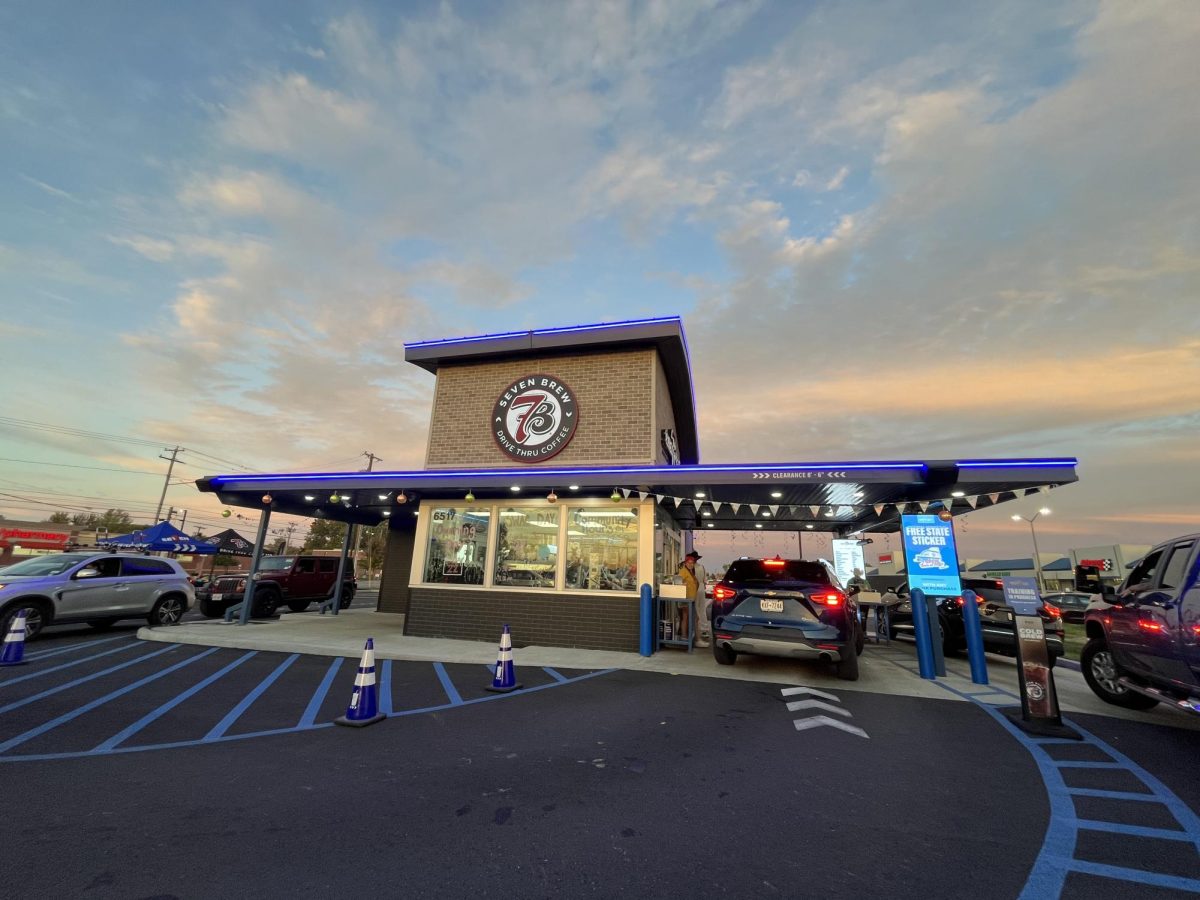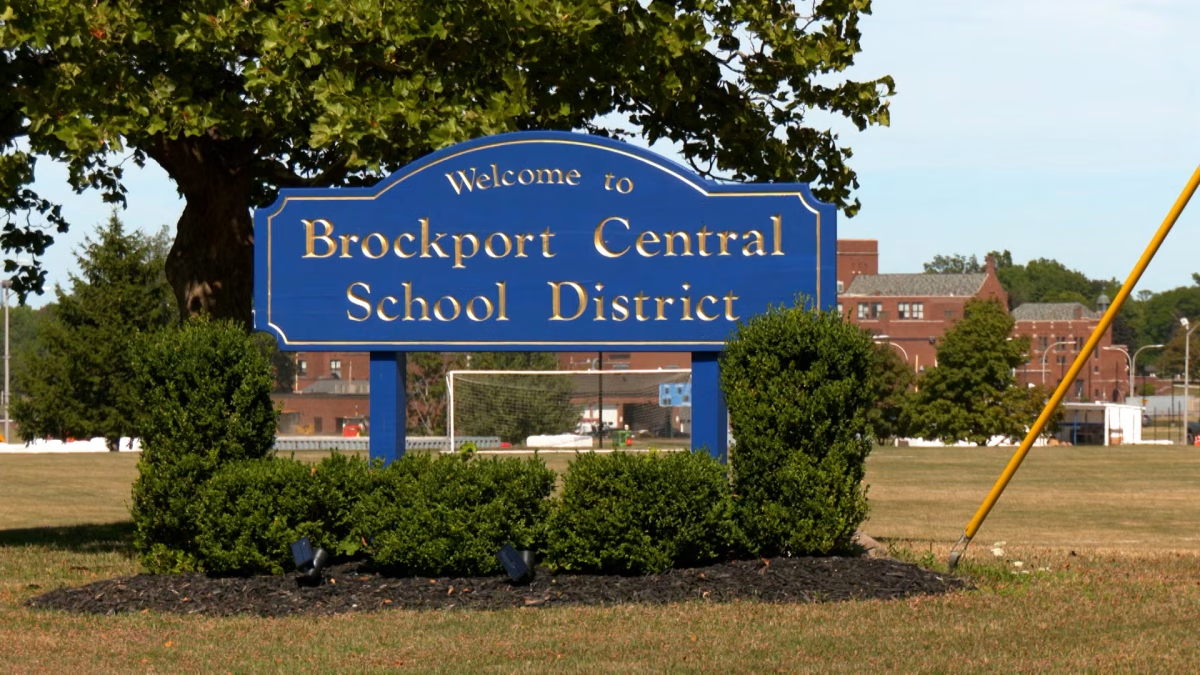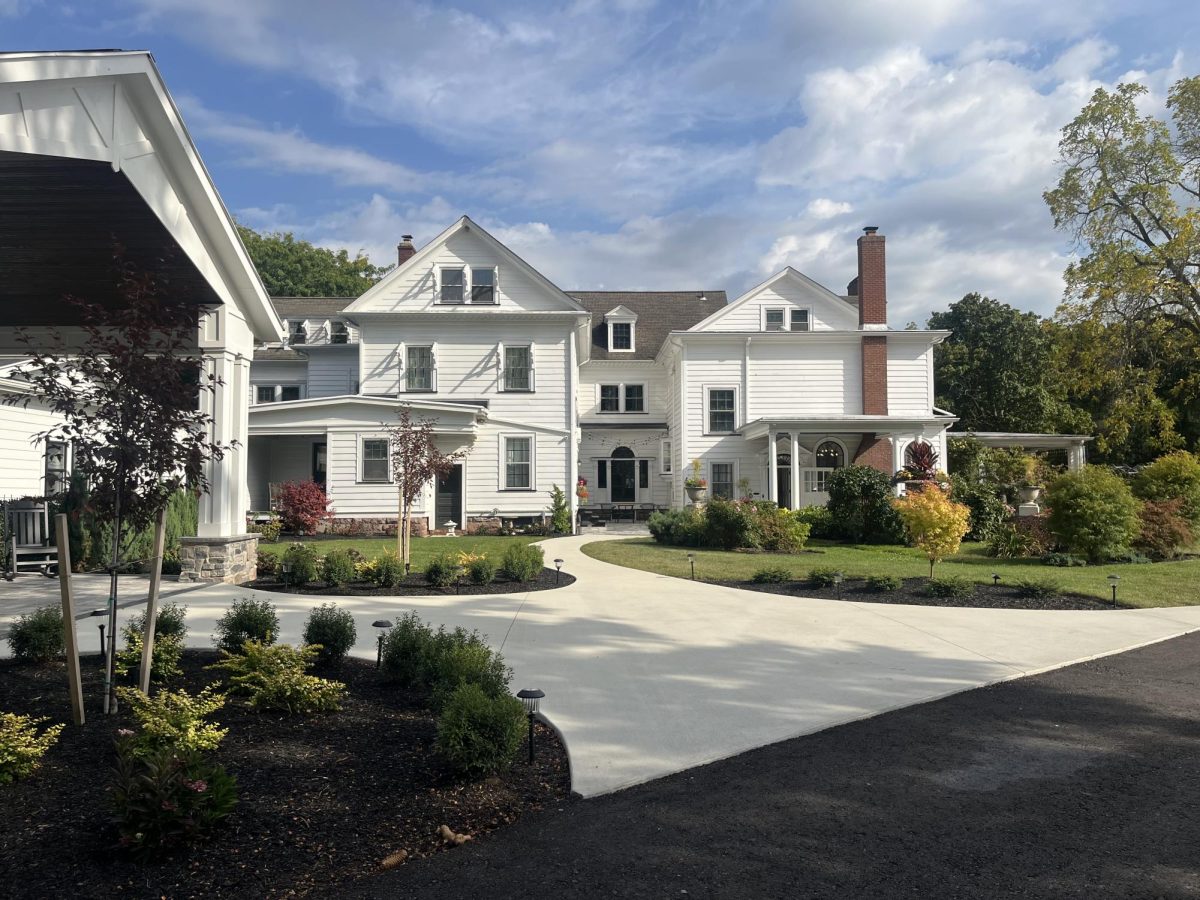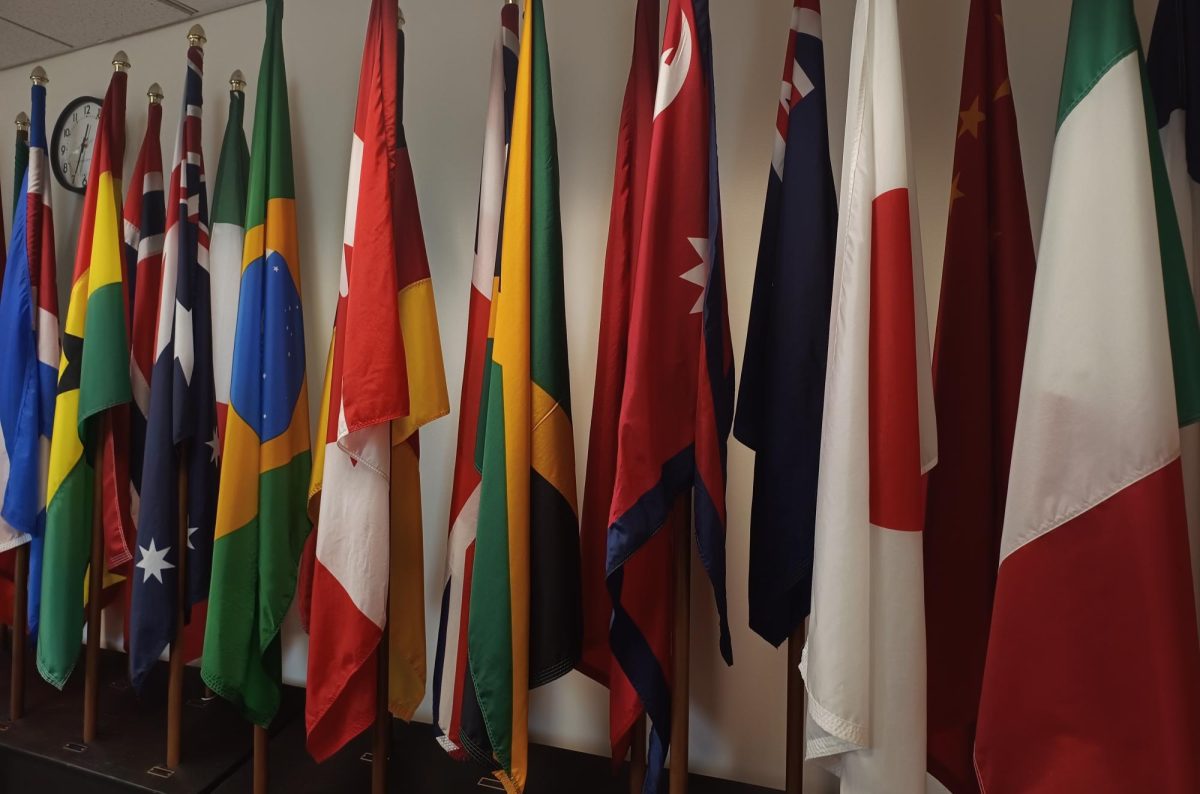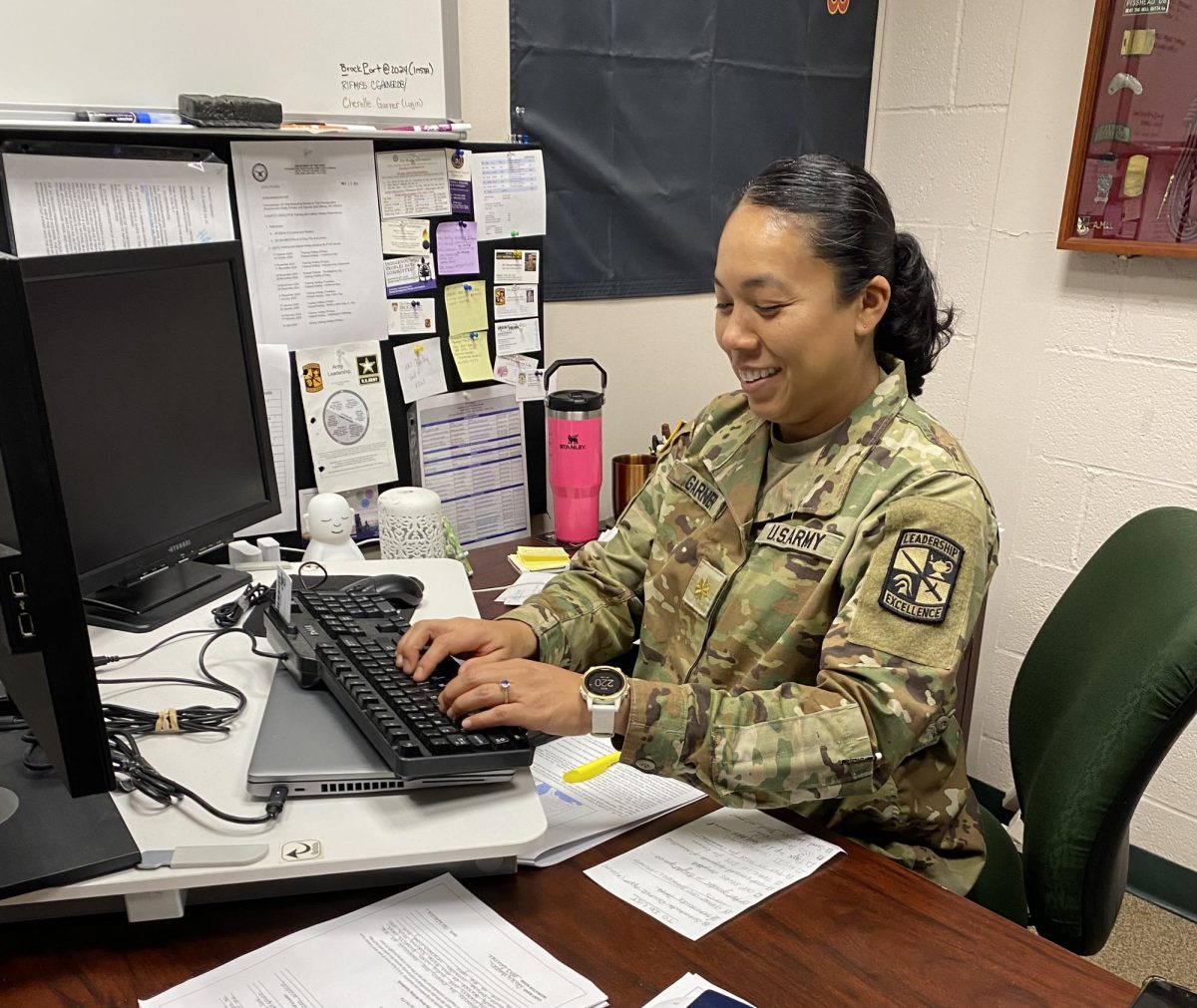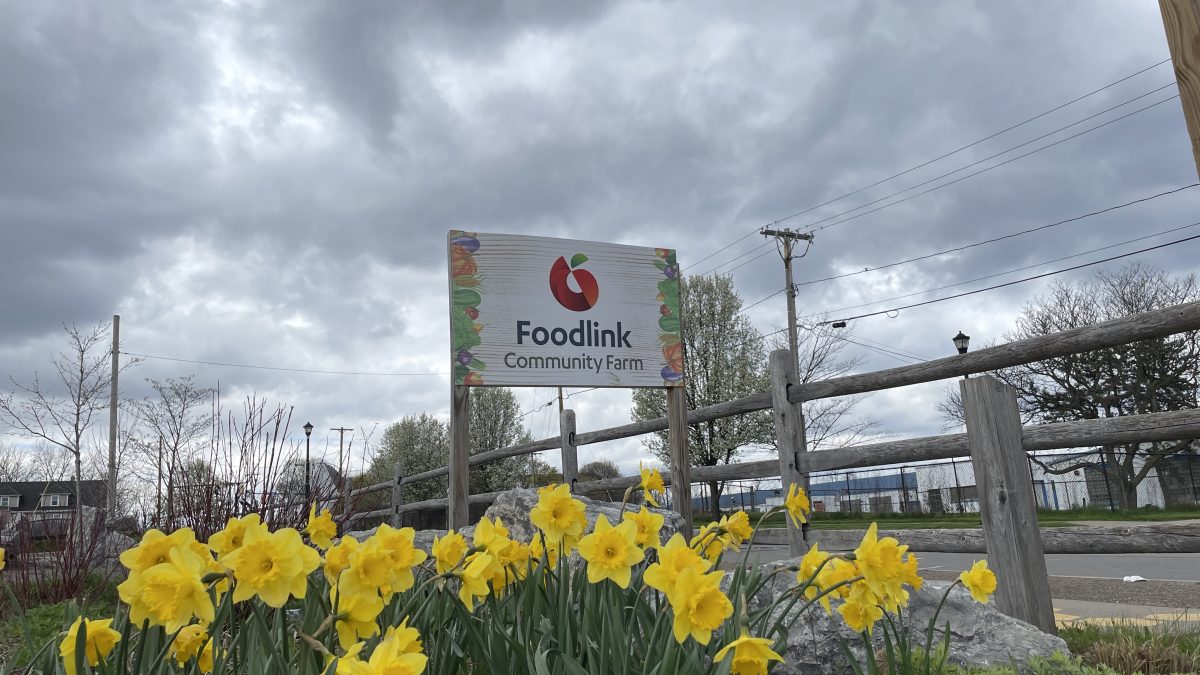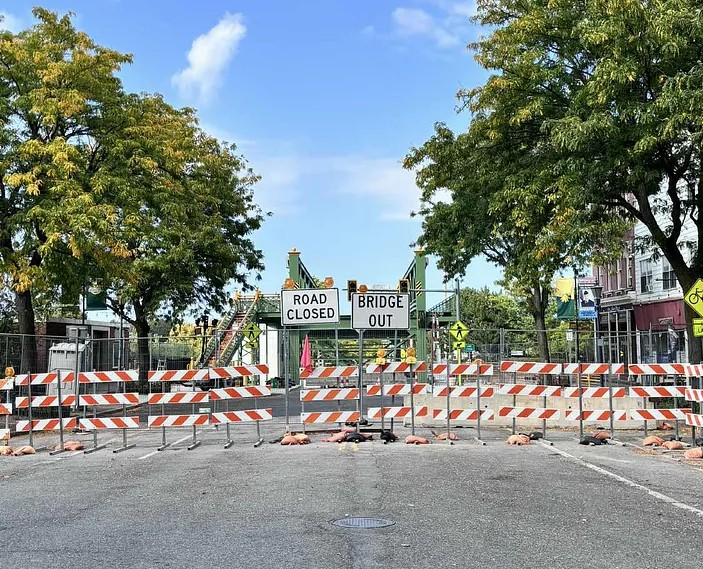BROCKPORT, N.Y. – From the corner of Main and Market streets, Next Level Barbershop might look rather typical. Maybe the black and white color scheme is a little more current—in an austere sort of way—the emblem design perhaps a little more stylish. Two barber poles straddle the front door, now inert, signaling that walk-ins are a thing of the past—that spontaneity remains a casualty of the pandemic.

Even with this symbol of our new age conspicuously out front, you’d hardly know it once you stepped inside. Yes, you’d be greeted by familiar sights, sounds, and scents. Beard and hair products lining the large back mirrors, leather swivel chairs guided by gloved hands; the sound of clippers buzzing and squeeze bottles spritzing; the sharp smell of disinfectant, softened and abridged by a pleasant aftershave.
All these things are not unlike other shops around the country, but Next Level’s most ubiquitous feature might just be the barks of laughter and good humor that permeate throughout.
“I love working here,” says Jon Burris, one of two independent contractors who operate the business. “Probably the best job I’ve ever had.” He laughs, “It’s just sad it took me 40 years to figure out.”

Like the hospitality industry, barber shops, which fall under the umbrella of the personal care service industry, were particularly hard hit by the pandemic. As non-essential businesses, they were forced to close on March 20, and unable to reopen until the second phase on May 29. The 500-billion-dollar global industry is now expected to see a decline as much as 15 percent—an alarming figure after many years sustained at a 4-5 percent rate of annual growth.
Next Level’s owner, Jeremy Lindsay, shut down his business for three months at the outset of the pandemic—eventually reopening in June. Although he owns and operates the business, Lindsay, along with his friend, Burris, both function as independent contractors—a nebulous predicament for navigating the financial stresses brought about by COVID-19.
Burris says that as a cash-business, they weren’t eligible for unemployment.
“We were all scared, we didn’t know what was going to happen. We ended up shutting down for three months. Came back in June. Followed the regulations, which meant less people, masks and gloves and all that. It was a hard three months,” Burris said. “Whatever we had stashed was basically what we had to survive on for that time. If I don’t cut hair, I don’t make money.”
Before the pandemic, Next Level had done a large chunk of its business through walk-ins. And even after some restrictions had been lifted, business was slow-going. Lindsay attributes a lot of this to general apprehension, and some to the emergence of DIY (do it yourself), hair care.
He estimates the business serviced around 30 clients a day, pre-pandemic, and that those numbers have been halved since—and now, all of them appointments.

“We’ll never meet our old better, but we’re definitely not in the red,” Lindsay said. “Just getting the doors back open was the best. And when they lifted the beard ban, that helped. $25 haircut, throw on $5 with the beard—it goes a long way.” NY State allowed for “under the mask” services on September 9.
Even without these new allowances, Next Level was able to get by. Lindsay credited his core customers for helping them stay afloat.
“Your cops, your firemen, veterans—regardless of the pandemic, they kept us rolling,” Lindsay said. “There were guys that came from Webster every week, too. If you got 10 guys that come every week, that helps. You can come once a month, once a week—sometimes twice a week, you know, if you got a date.”
Indeed, as Lindsay says, “Word of mouth built the business, and it didn’t take long. We haven’t advertised in 10 years of being open.”
Perhaps the advantages of small-town businesses have never rung truer. Lindsay believes people continued to support them, in part, out of a sense of civic pride and compassion, and it certainly didn’t hurt that Lindsay himself was born and raised here in Brockport. When you add that with Next Level’s back-booth charm, it would appear there is little outside of total catastrophe that could upend this business for good.
Lindsey and Burris are undoubtedly grateful. Amidst all the uncertainty of COVID-19, these two maintain the good-natured integrity that built their business.
“We try to make everyone feel at home,” Burris says. “Make everybody feel like they’re coming out of their house and into ours. We make fun, you make fun, we all laugh. Being comfortable is key.” He adds, “After that 3 months, coming back and being around people again, you know, having that cheerfulness, that was a silver lining. It made you appreciate it more—being able to talk to people, laugh again.”
Although they may never have waiting lines that stretch out the door again, Lindsay has come to appreciate the transformation.
“I have more control of my life now,” Lindsay says. “The first nine years were very stressful—when you got five people waiting in line and you got your kid’s game starting. I have, like, a whole new life now. That was a huge silver lining, I will say.”

